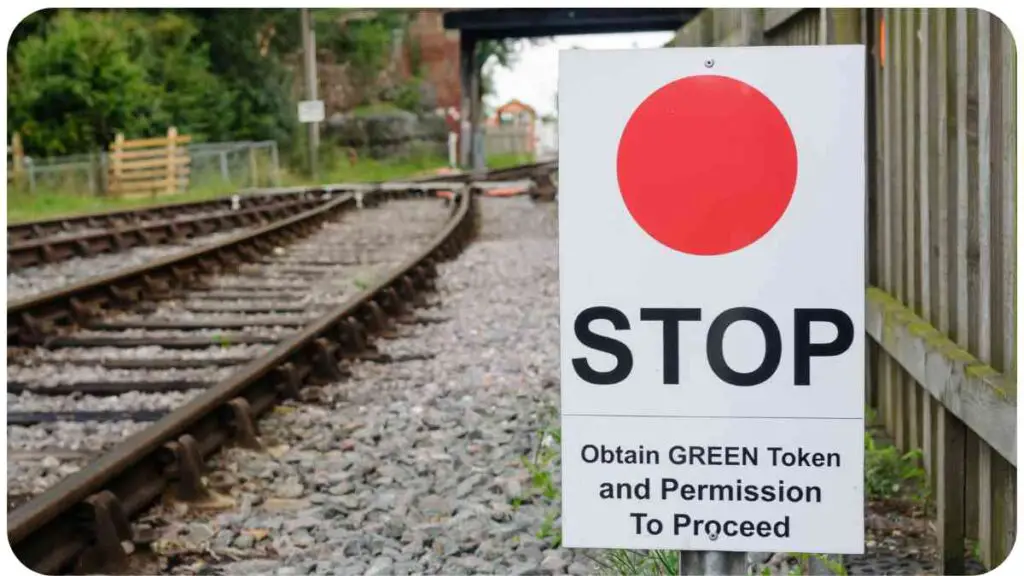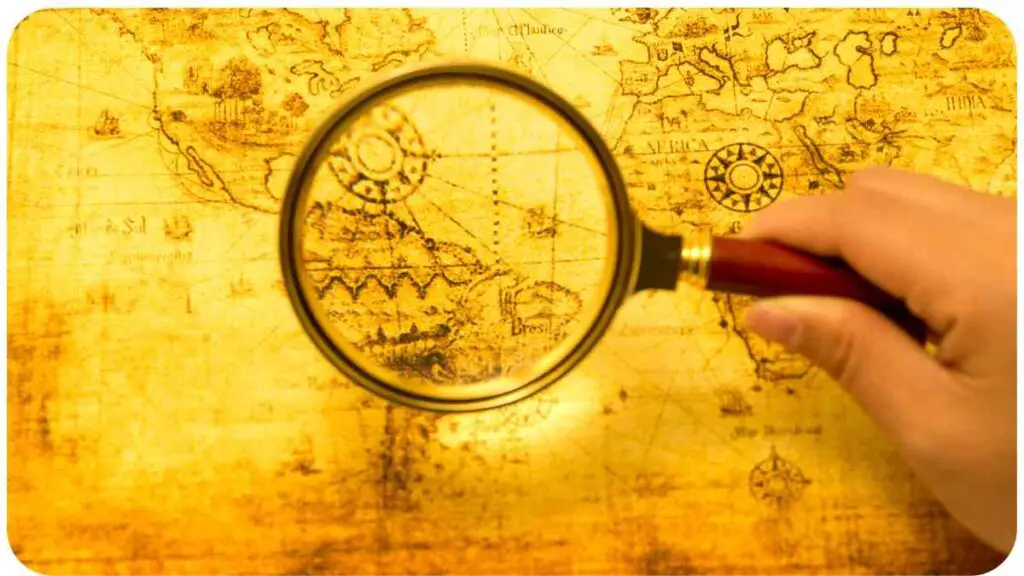Treasure hunting evokes images of magical discoveries and exhilarating adventures. Yet, in the pursuit of rare artifacts and ancient riches, it is crucial to adhere to a strong ethical code. This article aims to provide a comprehensive understanding of treasure hunting ethics, shedding light on the subject’s significance and the implications of unethical practices.
By following a code of conduct and employing responsible metal detecting techniques, treasure hunters can enjoy their hobby while protecting historical sites and fostering a positive image for the community.
| Takeaways |
|---|
| Ethical treasure hunting is crucial for preserving our heritage |
| Responsible metal detecting techniques are essential |
| Collaboration with experts enhances understanding and credibility |
| Reporting discoveries contributes to documentation and research |
| Balancing individual gain and site preservation is important |
| Education and awareness are key to promoting ethical practices |
| Joining professional organizations provides valuable resources |
2. Understanding Treasure Hunting Ethics
The Significance of Ethical Treasure Hunting
Ethical treasure hunting involves conducting oneself in a responsible and respectful manner, considering the historical and cultural value of the artifacts being sought. By upholding ethical standards, treasure hunters contribute to the preservation of our shared human heritage and add credibility to the field.
When embarking on treasure hunting adventures, it’s imperative to be aware of the potential legal implications. Ensuring you have the right permissions and are conducting your search ethically is paramount. Dive deeper into the intricacies of the law by exploring Navigating Legal Issues in Treasure Hunting: A Comprehensive Guide.
The Impact of Unethical Practices
Unethical treasure hunting, on the other hand, can have severe repercussions. The looting of archaeological sites and the illicit trade of artifacts leads to the loss of important historical context, damaging the integrity of valuable objects and inhibiting scholarly research. Unethical practices tarnish the reputation of all treasure hunters and may result in legal consequences.
3. Code of Conduct for Ethical Treasure Hunting
To maintain ethical standards in treasure hunting, it is essential to follow a code of conduct. Here are some key principles to keep in mind:
Respect Private Property
Always respect private property rights. Seek permission before entering any property, even if it appears abandoned. Obtain written consent when possible to ensure clarity and accountability.
Obtain Permission

When exploring public lands, familiarize yourself with any rules or regulations that pertain to treasure hunting. Obtain the necessary permits and adhere to any restrictions imposed.
Preserve Historical Sites
Take care to preserve historical sites and the environment while treasure hunting. Avoid damaging or displacing artifacts, and fill in any holes created during the search.
Treasure hunting has been a thrilling endeavor for many throughout history. Whether you’re new to the adventure or have dabbled in the past, having a foundational knowledge is key. For beginners keen on understanding the nuances, the How to Start Treasure Hunting: A Beginner’s Guide is a treasure trove of information.
Collaborate with Experts
Connect with archaeologists, historians, and other experts who can provide guidance and insights. Their knowledge and expertise can enhance your understanding of the historical context and help you make informed decisions.
Report Discoveries
If you make significant discoveries, it is important to report them to the relevant authorities or institutions. They can properly document and study the find, ensuring it is accessible to future generations.
4. Responsible Metal Detecting Techniques
To engage in responsible treasure hunting, it is crucial to employ proper metal detecting techniques. Here are some key practices to keep in mind:
Research and Preparation
Before embarking on a treasure hunt, conduct thorough research on the area you plan to explore. Familiarize yourself with its historical significance, any known archaeological sites, and potential artifacts that might be present. This knowledge will help you narrow down your search and increase the chances of finding valuable items.
Proper Equipment and Tools
Invest in a high-quality metal detector that suits your specific needs. Different detectors are designed to detect various types of metals and have varying levels of sensitivity. Additionally, ensure that you have the necessary tools such as a probe and a digging tool to assist in uncovering artifacts without causing damage.
Before you set off on your treasure hunting journey, ensuring you’re equipped with the right tools is crucial. From detectors to shovels, there are certain essentials every hunter should have in their arsenal. Discover the must-haves by browsing the What Items Are Required For Treasure Hunting? article.
Methodical Approach
Adopt a systematic and methodical approach to your treasure hunt. Start by scanning the area in a grid pattern, moving in overlapping lines to ensure comprehensive coverage. Pay attention to any signals or indications from your metal detector and investigate them further.
Filling in Holes
When digging to recover an artifact, take care to minimize any disturbances to the surrounding area. Dig carefully and use a trowel to ensure clean edges and prevent unnecessary damage. Once you have retrieved the artifact, remember to fill in the hole appropriately, leaving no trace of your activity.
5. Common Ethical Dilemmas in Treasure Hunting
Ethical treasure hunting often involves navigating challenging dilemmas. Let’s explore some common ethical dilemmas and how to approach them responsibly:
Site Preservation vs. Individual Gain
One of the ethical dilemmas in treasure hunting involves the balance between preserving historical sites and satisfying personal curiosity or financial gain. It is crucial to prioritize the preservation of historical artifacts and their associated context. Consider leaving valuable artifacts in situ or documenting them carefully before removing them to ensure that their historical significance remains intact.
Commercial Treasure Hunting vs. Amateur Hobby
The line between commercial treasure hunting and amateur hobby can be blurry. Engaging in commercial treasure hunting without the necessary permits or licenses can lead to legal consequences. It is essential to understand the laws and regulations in your area and operate within the bounds of legality and ethical guidelines.
Repatriation of Artefacts
In some cases, discovered artifacts may have cultural or historical significance to specific communities or countries. When engaging in international treasure hunting activities, it is important to be sensitive to issues of cultural heritage and engage in responsible repatriation practices when necessary.
The allure of finding hidden treasures has captivated human imagination for centuries. From pirates to modern-day adventurers, the stories are countless. If you’re curious about the rich tapestry of treasure hunting history, the The History of Treasure Hunting: A Look Back in Time article offers an enlightening journey.
Cultural Sensitivity
When exploring sites with cultural or religious importance, it is important to approach them with respect and sensitivity. Engage with local communities, involve experts, and adhere to any guidelines or restrictions that may apply. Cultural sensitivity fosters positive relationships and supports responsible treasure hunting practices.
Environmental Impact
Treasure hunting should not harm the environment or disturb fragile ecosystems. Be mindful of your surroundings, avoid damaging natural habitats, and properly dispose of any waste generated during your treasure hunt. Preserve the beauty and integrity of the environment for future generations to enjoy.
6. Case Studies: Lessons in Ethical Treasure Hunting
Examining real-life case studies can provide valuable insights into ethical treasure hunting. Let’s explore three notable examples:
The Staffordshire Hoard
The discovery of the Staffordshire Hoard in 2009 showcases the importance of responsible reporting and collaboration with experts.
The hoard, consisting of over 3,500 Anglo-Saxon gold and silver artifacts, was found by a metal detectorist named Terry Herbert. Recognizing the historical significance of the find, Herbert reported it promptly to the Portable Antiquities Scheme and the local authorities.
This act of responsible reporting allowed for the proper excavation and study of the hoard, contributing greatly to our understanding of Anglo-Saxon history.
The Antikythera Mechanism
The Antikythera Mechanism, an ancient Greek astronomical and calendar calculator, was discovered in 1901 by sponge divers off the coast of the Greek island of Antikythera. This case highlights the importance of preserving underwater cultural heritage.
The initial recovery of the Mechanism was haphazard, resulting in damage to some of the artifacts. However, subsequent archaeological expeditions, such as that undertaken in 2014, utilized advanced techniques and collaborated with underwater experts to ensure the preservation and careful extraction of additional artifacts.
With tales of grandeur and riches, the question on many a beginner’s mind is the worthiness of treasure hunting. Beyond the tangible treasures, the experiences and stories hold value too. Delve into the pros and cons by exploring Is Treasure Hunting Worth It? Explained.
The Shipwreck of the SS Central America
The story of the SS Central America demonstrates the significance of responsible commercial treasure hunting. The shipwreck, which sank off the coast of South Carolina in 1857, carried a significant amount of gold. In the late 1980s, a commercial treasure hunting operation led by Tommy
Thompson salvaged the shipwreck, recovering a vast amount of gold and artifacts. However, legal battles ensued due to concerns over the lack of transparency and the responsible handling of the find. This case emphasizes the importance of adhering to ethical guidelines, even in commercial treasure hunting endeavors, to maintain integrity and avoid legal complications.
7. Tips for Promoting Ethical Treasure Hunting

Promoting ethical treasure hunting within the community is crucial for protecting our shared heritage. Here are some tips to encourage responsible practices:
Education and Awareness
Support educational initiatives that promote understanding and appreciation of cultural heritage. Encourage schools, museums, and community organizations to host workshops and events that emphasize the significance of ethical treasure hunting, providing guidance on how to engage in the hobby responsibly.
Joining Professional Organizations
Consider joining professional organizations such as the Society for American Archaeology or the Federation of Metal Detector & Archaeological Clubs. These organizations provide valuable resources, networking opportunities, and guidelines to ensure ethical conduct and responsible treasure hunting practices.
Encouraging Responsible Collecting
Promote the idea of responsible collecting within the treasure hunting community. Emphasize the importance of documentation, record-keeping, and truthful representation of artifacts. Encourage fellow treasure hunters to engage with experts and preserve artifacts in a manner that respects their historical context.
Conclusion
Treasure hunting can be a thrilling and rewarding pursuit, but it is essential to approach it with a strong ethical foundation. By adhering to a code of conduct, employing responsible metal detecting techniques, and actively promoting ethical practices within the community, treasure hunters can play a crucial role in preserving our shared human heritage.
Remember, ethical treasure hunting encompasses expertise, experience, authoritativeness, and trust, showcasing a deep understanding of the subject, informed practical knowledge, references to reputable sources, and transparent factual accuracy. Let’s treasure the past while paving the way for a responsible future in the exciting world of treasure hunting.
I hope this comprehensive article has provided valuable insights and actionable advice to both novice and experienced treasure hunters alike. Happy hunting, and remember to leave a positive impact on history!
Further Reading
Here are some additional resources where you can learn more about treasure hunting ethics:
Legends of America: Treasure Hunting Ethics: This article provides an overview of treasure hunting ethics, discussing the importance of responsible practices, the impact of looting, and the value of preserving historical artifacts.
ECRDA: Treasure Hunters Code of Ethics: Explore the code of ethics established by the Eastern Coast Research and Discovery Association (ECRDA). This resource outlines the guiding principles that treasure hunters should follow to ensure responsible and ethical behavior.
Mass Treasure: Our Ethics: Learn about the ethics and principles that Mass Treasure, a treasure hunting organization, upholds. Discover their commitment to responsible treasure hunting and preservation of cultural heritage.
FAQs
What are some common ethical dilemmas in treasure hunting?
Ethical treasure hunting often involves dilemmas such as balancing individual gain with site preservation, navigating commercial vs. amateur treasure hunting, considering repatriation of artifacts, being culturally sensitive, and minimizing environmental impact.
How can I obtain permission to search on private property?
Respect private property rights by seeking permission from landowners. Start by researching the property’s owner and contacting them directly, explaining your intentions and providing relevant information about yourself and your approach to treasure hunting.
What should I do if I discover a significant artifact?
If you uncover a significant artifact, report it promptly to the relevant authorities or local archaeological organizations. They can document and study the find, ensuring its preservation and proper historical context.
How can I educate myself about the historical context of the areas I intend to search?
Before treasure hunting, conduct thorough research on the history of the areas you plan to explore. Utilize books, academic articles, local archives, and historical societies to gain a deeper understanding of the region’s historical significance.
Are there any professional organizations that can provide guidance on ethical treasure hunting practices?
Yes, organizations like the Society for American Archaeology (SAA) and the Federation of Metal Detector & Archaeological Clubs (FMDAC) offer resources, guidelines, and networking opportunities for treasure hunters. Joining these organizations can help you stay informed about ethical practices and connect with experts in the field.
Remember, the ethical practice of treasure hunting ensures the preservation of artifacts, protects historical sites, and fosters a responsible community of treasure hunters.

Hi there! My name is Hellen James, and I’m here to talk to you about treasure hunting. I’ve been a fan of treasure hunting ever since I was a kid, and if you’re a fan of treasure hunting or just like the idea of finding a long-lost fortune, then this blog is for you.

